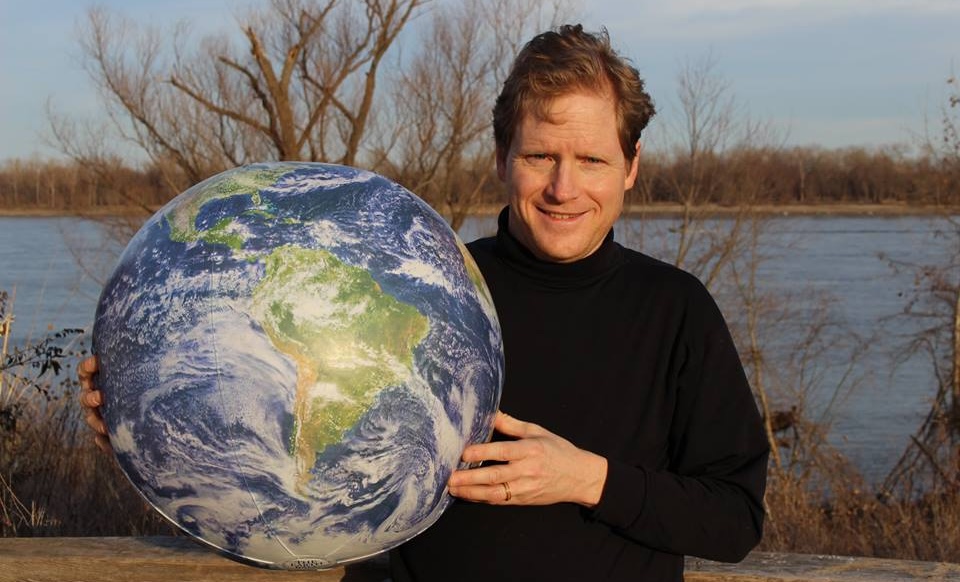
“It’s not enough to be angry when it comes to politics and the world.
We must channel our energy into action and link with others who are acting effectively.”
– Brian Ettling
This is the toughest blog for me to write. In fact, I devoted the last year to writing about my life story and blogging for years before that. I knew it was vital for me to write this blog, but I dreaded writing it. For the past 23 years, I have felt that environmentalists, climate advocates, progressives and Democratic leaning voters were not smart about electing Presidential, state level, and local candidates who would protect our environment, planet, and our democracy.
This is a very painful blog to write, but I feel like I must share but to share my story. Hopefully, someone can learn from my disappointment and letdown I felt from environmental and climate Democratic voters who allowed awful candidates for President and other elected offices win.
This was such a tough blog to write. I had so much to say that I broke up it into many parts:
Part 1, My 1980s childhood in Missouri to witnessing 2000 Presidential Election in Florida.
Part 2, my story from 2001 to 2007.
Part 3, 2007-08, Loss of a friend, Leaving the Everglades, and finding my passion for climate action.
Part 4, Healing from grief and Taking Climate Action in Oregon and Missouri 2009-2016
Part 5: My frustration and heartbreak with the 2016 Presidential Election
Initial impression and skepticism about Senator Bernie Sanders running for President
On April 30, 2015, U.S. Senator Bernie Sanders from Vermont announced that he was running for the Democratic nomination for President of the United States. I never heard of him. I found him to be intriguing because he has never been a registered member of the Democratic party and calls himself a “democratic socialist.”
I leaned towards supporting Hillary Clinton for President because of her experience as a former First Lady, U.S. Senator, and Secretary of State. I found her to be extremely intelligent and insightful in TV and radio interviews. I thought she would make an excellent President. At the same time, I welcomed a vigorous debate for the Democratic nomination. I had concerns that many Republicans, independent voters, and even Democratic voters strongly disliked her. Personally, I liked U.S. Senator Elizabeth Warren and wanted her to run for President. If Elizabeth Warren was not running, I saw Hillary Clinton as the best Democratic candidate for President.
The first time I commented about Bernie Sanders on social media, primarily Facebook, was July 25, 2015. I found an informal online survey determining how my views matched up with Bernie Sanders vs. Hillary Clinton. For that post, I wrote, “Vote for the candidate based on issues and NOT party. Use https://www.isidewith.com/ to see who you agree with most on many of the top issues we are all discussing. I am with Bernie Sanders.”
During the summer of 2015, I worked as a park ranger at Crater Lake National Park, Oregon. After one of my ranger talks, I chatted with a couple in their 30s who were from New Hampshire. I commented that it must be interesting living there having the first Presidential primary in an election year. They responded that they had met many Presidential candidates over the years. Most recently, they shared that they met Bernie Sanders. I asked them how that went.
They replied that he had many great ideas on healthcare and other issues. However, they seemed skeptical that his ideas would pass through Congress if he was President. They asked him, ‘You have bold ideas, but how are you going to pass that through Congress?’
His response: ‘We need a revolution to elect members of Congress to get those items passed.’
They were unimpressed with his answer, and they decided not support him for President. Their response left a big impression on me that Bernie Sanders did not seem like a good candidate. After that conversation, I did not focus much on Bernie Sanders. I worked at Crater Lake until October 7th. I then drove across country from Oregon to St. Louis, Missouri. After I arrived home on October 16th, Tanya and I had to prepare for our November 1st Wedding.
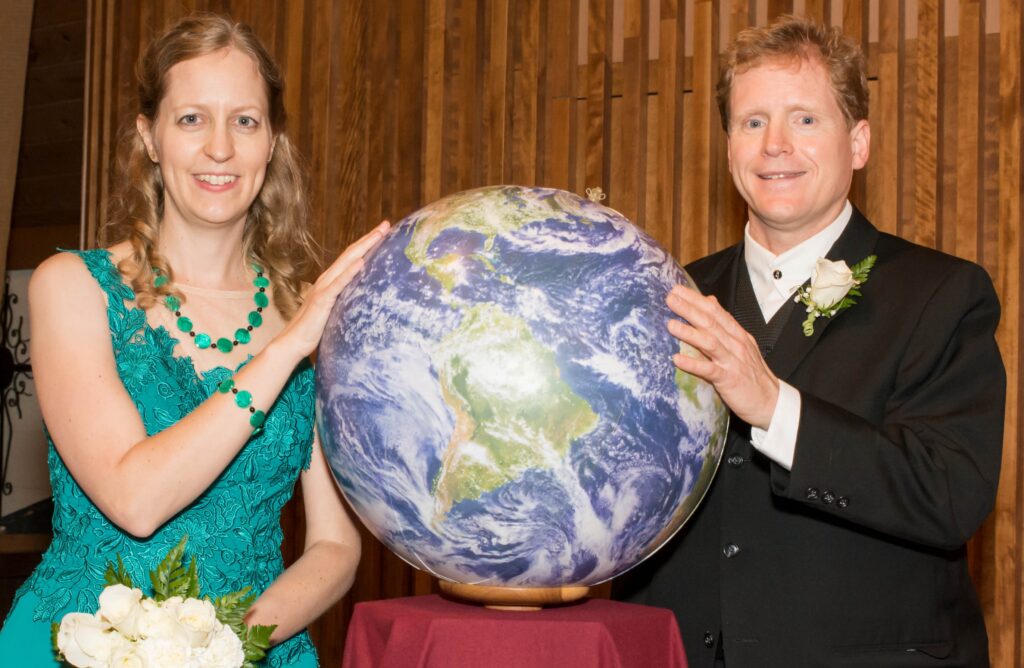
Getting married in November 2015 and seeing floods in St. Louis in December 2015
Tanya and I had a fantastic wedding with over 100 people in attendance. My mother-in-law is originally from Denmark, so we had nine relatives from Denmark come to the wedding. With their visit, we had festivities happening for days afterwards.
Two weeks later, I taught a climate change 101 continuing adult education class at St. Louis Community College. November 15th to November 19th, I traveled to Washington D.C. to attend the Citizens’ Climate Lobby conference and to lobby with them for climate action at the Congressional Offices on Capitol Hill.
The only downside was that I got a frozen shoulder from handling a suitcase that was too heavy from this trip. It was very painful to move my right arm and shoulder in the remaining weeks of 2015 and beginning of 2016. Fortunately, I was able to go to a doctor who prescribed physical therapy for me. By April 2016, thankfully my shoulder healed, and I felt back to normal.
In December 2015, I was productive with my climate writing. I wrote two blogs about how I taught my climate change 101 continuing adult education classes. Plus, I wrote a blog about the toast my mother-in-law gave at Tanya and my wedding supporting my climate change work. In addition, the St. Louis Post-Dispatch published my opinion editorial, “A GOP market friendly alternative to Obama’s Clean Power Plan.” This was my third op-ed published in Post-Dispatch the past two years. Plus, I had 10 opinion commentaries published in Oregon newspapers in 2013. Thus, at the end of 2015, I felt like I was becoming a pretty good at getting op-eds for climate action published in newspapers.
As 2016 approached, I focused on blogging and writing for climate action. We had heavy rains in St. Louis starting the day after Christmas and continued for a couple of days after that. This led to severe flooding with standing water that overflowed the Mississippi, Missouri, and Meramec Rivers, causing gridlock of traffic in the St. Louis metro area.
On December 30th, my wife and in-laws drove several hours from their house in West St. Louis County to my parents’ home in South County. That drive normally takes around 30 minutes. We received our wedding photos a couple days earlier. We were excited to see the photos, but the weather, enhanced by climate change, dampened the occasion. After that experience, I wrote the blog two weeks later, “Experiencing a taste of climate change is no ‘walk in the park.’”
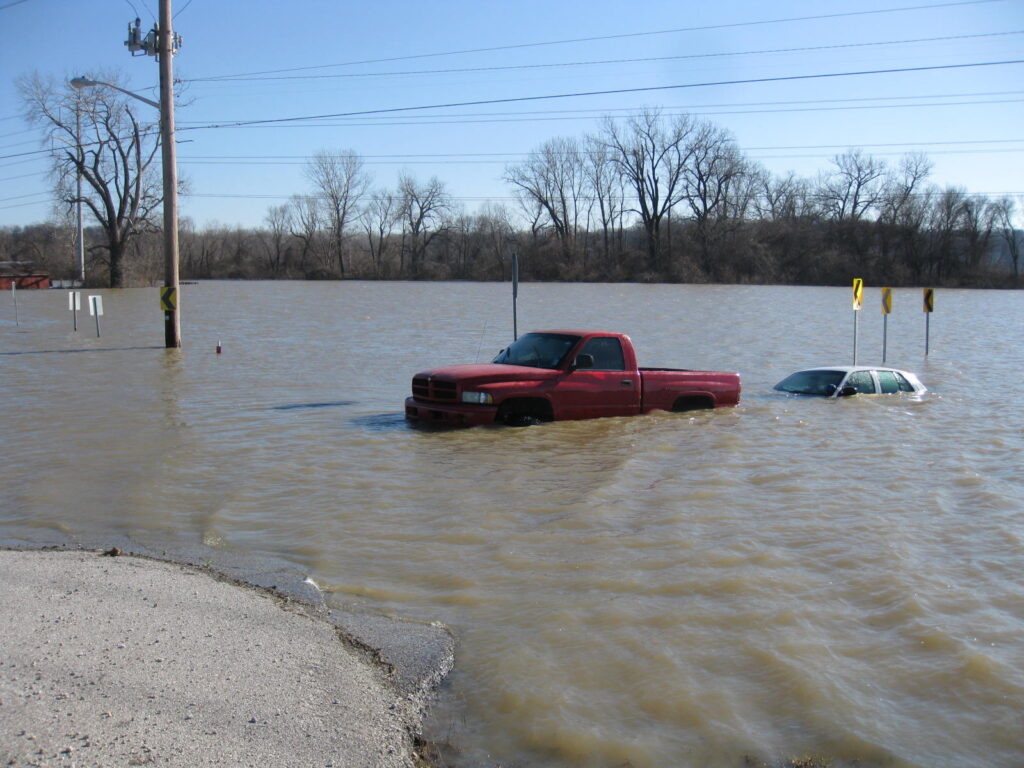
Receiving angry responses from friends because I was not ‘Feeling the Bern’
As I began writing my next blog, I noticed the Presidential campaign was heating up between Hillary Clinton and Bernie Sanders. On January 18, 2016, I read an article by Laura Akers, Contributor to the Huff Post, “To Those of You Who Feel the Bern.” Akers wrote,
“To my progressive and liberal friends who support Bernie Sanders: I’m starting to get a little worried. You see, I see some of you spending a lot of time talking about Hillary Clinton as though she is the enemy. And I get why you’re concerned about her in the primary. I really do…
So please, support your candidate. Sing his praises to the sky. Talk about his track record and his vision and what he could do for this country. But remember that the primary is not the whole game.
In fact, remember that this is not a game.
That this is not about your guy winning or taking your ball and going home. This is about making our country — all of it, in a lot of different arenas — a better place. And that either of them will be far better for the majority of this country than the alternative.”
The intense passion of Bernie Sanders supporters was impressive. However, I noticed rumblings among them that if he was not the Democratic nominee, they would not vote Hillary Clinton for President in November 2016. As a Florida voter in 2000 who had to contend with Ralph Nader voters, hearing these statements from Sanders supporters deeply troubled me.
When I posted this article, I received over 30 comments, many from my ranger colleague from Crater Lake, Mike Frederick. He said if Bernie was not the nominee and it was Hillary Clinton, he was not going to vote in November. He would just stay home. Other friends and I tried to discourage him from taking a strident stand, but Mike refused to listen. Mike and a few others who commented had me very troubled about the upcoming 2016 election.
On January 25, 2016, Paul Starr wrote a piece for Politico that I concurred, “I Get Sanders’ Appeal. But He’s Not a Credible President.” The subhead was, “Democrats have a choice between a symbolic candidacy and a real one. They should choose the real one.”
He added, “(Sanders’) campaign has been waging is a symbolic one. For example, the proposals he has made for free college tuition and free, single-payer health care suggest what might be done if the United States underwent radical change. Those ideas would be excellent grist for a seminar. But they are not the proposals of a candidate who is serious about getting things done as president—or one who is serious about getting elected in the country we actually live in.”
Like the New Hampshire voters I chatted with the previous summer, I was skeptical Bernie Sanders could implement his grand ideas. After I posted this article, I received nearly 100 comments on Facebook. Many of the comments were from strong Bernie supporters angry with me that I was not supporting him.
This was the response I wrote to them, “If you think Bernie can win the Presidency, well I am from Missouri. ‘Show Me’ that he can. Instead arguing with me on Facebook, I need to see you taking action: working his phone banks, knocking on doors, getting your friends & family to the polls during the primaries, helping to raise money, putting the signs on your lawn, etc. doing whatever you can to make it happen. Don’t just quote me poll numbers and tell me he’s the better candidate. Show me how you are going to make it happen. I need to see action from you.
Again, I am going to support whatever Democratic nominee that emerges. I like Bernie and Hillary. Thus, I am not your opposition. Show me that you can form a coalition stronger than the Republicans that will help get all of Bernie’s ideas passed.
Show me that you have a strong enough network when the GOP decides they will obstruct everything Pres. Sanders want to do, just like they did with Obama starting in 2009.
Show me that you will have enough strength, numbers and energy to overcome the Tea Party, Koch Bros, NRA, ALEC, etc in the 2018 mid-terms. Again, I am not your opposition. They are.
We cannot let a GOP President come into office in 2017 and take a giant step backwards on climate action, the EPA clean power plan, a woman’s right to choose, gun control, clean water for Flint & all of us, overextending ourselves with a war on ISIS in the Middle East, etc. We must find ways to continue to work together otherwise, otherwise the GOP will win.
Again, I need to see results from you in the primaries. Now get to work, show me results, and I will then be happy to join your bandwagon.”
Reading those Facebook exchanges on my wall in 2016, I was struck by the amount of time that hardcore Bernie supporters who were Facebook friends wanted to debate me. As I wrote above, I wanted to see that they were actively supporting Bernie by phone banking, knocking on doors, organizing events, etc. One Facebook friend, Videns Veritatis responded, “Should I send you my receipts and itinerary? Maybe after Iowa and NH you’ll be more convinced.”
Cathy Cowen Becker replied, “Happy to! I am phone banking and attending Bernie meetings weekly.” Yes, if one looked on Cathy’s Facebook page, they saw she was active in Bernie’s campaign. At the same time, Videns and Cathy would write very long comments on my wall defending Bernie and attacking Hillary. I found them to be very passionate, but not very persuasive.
This discussion turned into an endless rabbit hole of Bernie vs. Hillary debate. I started receiving hateful and derogatory comments because I expressed skepticism about Bernie on my Facebook wall. I deleted over 10 Facebook friends pelting me with nasty comments because I preferred Hillary Clinton over Bernie Sanders. I tried to explain numerous times to my Bernie friends that I was very alarmed by all the strong Bernie supporters or ‘Bernie Bros’ saying that they would not vote if he was not the candidate in November. I shared my story about Florida in 2000 and not wanting to relive that again.
The nastiness of the Bernie vs. Hillary debate caused me to try to post a more subtle but positive message on social media. I posted photos of me with my earthball with quotes I created such as, “Don’t tear other people down. Instead, aspire to bring love and hope into the world.”
“We are all angry at the gov’t, Wall Street, and the 1%. Let’s link together and channel that energy into effective peaceful action.”
“Those who scream the loudest are not always correct. Make sure you are also listening to the people who are calm, thoughtful and reasonable.”
By February 2016, I was burned out of the Bernie vs. Hillary debate. No, I did not ‘Feel the Bern.’ As I joked back then, I felt ‘Berned Out.’ I re-focused my energy on how I could be effective for climate action. I called numerous friends in the climate movement to attend the February 2016 St. Louis Chapter of Citizens’ Climate Lobby and 16 people showed up for this meeting.
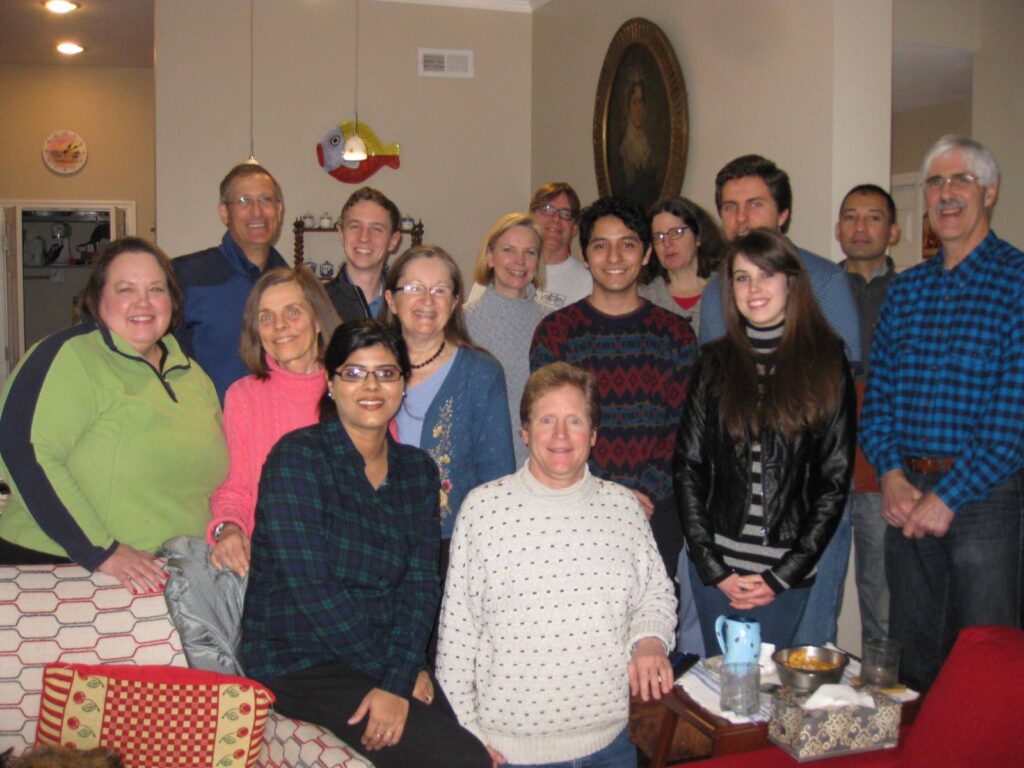
Why I supported Hillary Clinton for President in 2016 over Bernie Sanders
In March 2016, the St. Louis Post-Dispatch endorsed Hillary Clinton for President on March 6th, just one week before the Missouri Presidential primary on March 15th. I voted for her in the primary. I posted on Facebook about the Post-Dispatch endorsement and that I voted for Hillary, which created more scorn from Bernie supporters following me. They had a strong visceral dislike of her. When I tried to explain her positions on trade, fracking, campaign contributions, climate change, etc, they did not want to hear it. I always stated I would support Bernie if he was the Democratic nominee, but he was not my preferred choice in the primary election.
The negativity and hostility of the Bernie supporters scared me in the spring of 2016. I did not see how this was going to settle down for the 2016 election if Hillary became the nominee. After voting for Hillary in the primary, I focused on giving climate change speeches for South County Toastmasters three weeks in a row from March 23rd to April 6th.
In April 2016, the New York Times published an article, “The Right Baits the Left to Turn Against Hillary Clinton.” MSNBC then reported on that article, “When the right goes after Clinton from the left.” The subhead stated, “A variety of far-right groups, including Karl Rove’s, are pushing a bizarre new attack: Hillary Clinton isn’t liberal enough.” This created more angry comments when I posted those articles on my Facebook wall. I responded to one acrimonious comment with the example of climate and environmental writer Bill McKibben. In that New York Times article, it was noted that McKibben grabbed an attack of Hillary from a right-wing blog without realizing source that grabbed. Thus, again, it is important for respected activists like McKibben, double check their sources for tweeting and posting.
Several of my climate friends were swooning over Bernie Sanders because he wanted to ban fracking, he claimed to not take campaign money from fossil fuel corporations, he intended to phase out of nuclear power, and he supported a carbon tax. However, climate and energy writer David Roberts was unimpressed with both candidates, but especially Bernie Sanders. After watching them in a Presidential Debate, he wrote a Vox article, “The Clinton-Sanders exchange on climate change was a dumpster fire.”
Like me, Roberts felt that “Sanders rejects the notion that there might be trade-offs in climate policy, but the next president is likely to face many.” Sanders sounded great on paper, but I did not think he is realistic in effectively implementing his policies.
The longer the campaign wore on, but the less I liked Bernie Sanders. He seemed more like fingernails on a chalkboard. I could not wait for the primary campaign to be over. Bernie Sanders and his supporters with rightwing help painted Clinton as corrupt, ineffective, and not a progressive. As one person commented on my Facebook feed, “Clinton is so far to the right she could have just as well run as a Republican.”
I was not having it. I pushed back, “I don’t buy that for a second. Hillary is strongly pro-choice, favors equal pay, campaign finance reform, strong action on clean energy and climate change, increasing the minimum wage, LBGT rights, affordable college education, continuing the EPA Clean Power Plan, ending voter I.D. laws and restrictions, immigration reform, etc. None of the Republican candidates are in favor of these things. Anyone who says that there is no difference between Clinton and the Republicans is either confused or is kidding themselves. There is too much at stake in this election to think otherwise.
Even more, I heard the same thing as a Florida voter about George W. Bush vs. Al Gore in the 2000 election: ‘Tweedle-dee vs. Tweedledumb.’ Eight years of George W. Bush was a huge setback for climate policy, foreign policy, women’s rights, etc. I think you really need to sit down and think through what you are saying.”
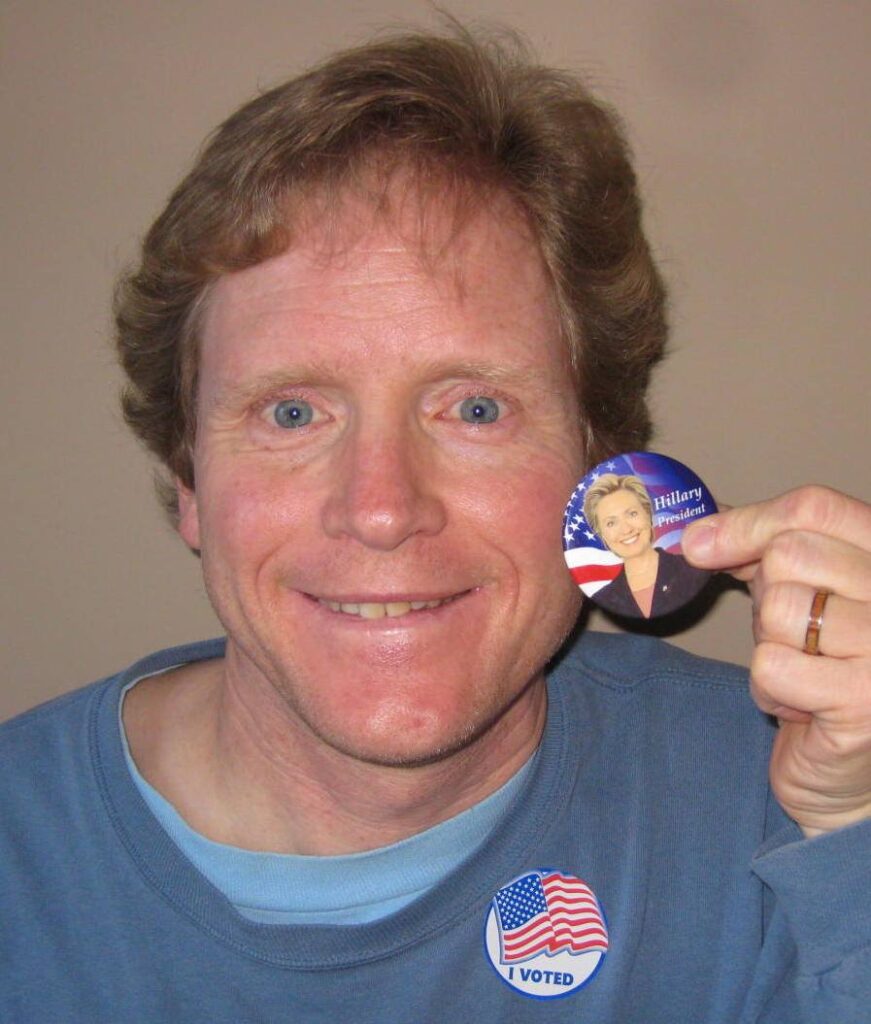
As I exchanged messages with the Bernie supporters, one even called me the ‘Democratic establishment.’ I found that to be odd because I had never attended a meeting for the Democratic Party and I was not that involved in politics at that point, except for lobbying the offices of my U.S. Representative and Senators to act on climate. My impression of Bernie supporters was that if you were not 100% behind Bernie, there was something wrong with you. Then you received their full wrath, anger, and insults.
One person wrote to me, “I like you, Brian, but sometimes in your wonderful pursuit of the ideal I think you may sometimes lose grasp of the real.”
Or lecturing me with, “We’re running out of time. ‘Pragmatic incremental change’ just doesn’t cut it.” Not realizing that the President Barak Obama in 2016 was a pragmatist. He got what he could accomplished having a hostile Republican Congress for most of his Presidency. I remember reading he would direct his staff in negotiating with Congress, ‘a half a loaf is good.’ In other words, he was happy to get what he could making deals with Congress and the GOP.
In 2016, I was unimpressed by the methods of persuasion by Bernie supporters. As I remarked to one of his most loyal supporters in February,
“If Bernie followers want to truly succeed, they must build a winning coalition. They must build a strong majority. The Bernie-or-bust mentality and extremely hostile tone I have seen when I and others express doubt Bernie or support for Hillary is very disconcerting. I am becoming more convinced that Bernie is going to lose the nomination because his supporters could not effectively reach out to moderate and Hillary leaning voters. It will be close and tight but the lack of civility I have seen is going to come back to bite Bernie supporters in the long run. In the summer of 2015, I was leaning towards Bernie but I got turned off by the Bernie-or-bust over the winter. This is something that should give you pause. I like Bernie Sanders. I think he is a great guy. However, I got turned-off by Bernie’s followers. I do want to wish you and Bernie all the success for the primaries. Let’s do all we can to come together for the general.”
My concern was the progressive critics of Hillary had made up their minds in the spring of 2016. With all this bitterness, I did not see how they would vote for her in the general election. Fortunately, Hillary Clinton secured the Democratic nomination for President on June 7, 2016. I happily posted about it, and friends that disliked her responded with the typical snide comments.
Yes, I was probably on a fool’s errand. However, I wanted to talk friends off the ledge that if Bernie was not their candidate they would not vote in November 2016. I thought it was too risky to take a stand like that when the Republican candidate was Donald Trump who looked like he could do a lot of damage to our country and democracy if he won the Presidency.
To me, it did not feel like Ralph Nader voters in 2000 and Bernie Sanders voters in 2016 understood coalition building. It’s one of the weaknesses of the U.S. style of democracy for voting separately for a President and members of Congress. In a parliamentary system of democracy, such as Canada, Great Britain, Italy, Japan, Latvia, the Netherlands, and New Zealand, a voter votes for the member of Parliament and the party that they are affiliated. The party that has a majority in parliament then selects a Prime Minister and forms a government. If that party does not have a majority, they form a coalition with political parties in the parliament who have somewhat similar agendas and then select a Prime Minister and a cabinet.
My personal opinion is that it too many Americans feel like if they just vote a Presidential candidate they like, their work is finished. They fail to understand that they need vote for the same political party in Congress as the President to increase the likelihood that the Congress will then pass the President’s agenda. If a Green Party candidate like Ralph Nader is elected President or a Democratic socialist like Bernie Sanders is elected President, but then the American voters select a Congress with Republican majorities in the House and Senate, I am skeptical a President Nader or Sanders would be able to accomplish much. That was my opinion in 2000 and 2016. I still feel that way today.
Bit of Climate Change Comedy among the heaviness of the 2016 Presidential Campaign
In spite the friction I had with friends who were Bernie supporter in 2016, I had a very productive spring and summer as a climate organizer. On April 6th, I was voted “Best Speaker” by my fellow South County Toastmasters for my speech, “Hey U.S.A! Let’s Win the Clean Energy Race!” The St. Louis Post-Dispatch published my op-ed that I submitted to them for April 22, 2016, “Earth Day and our national parks calls for GOP climate action.”
Then in mid- April 2016, something unexpected and magical happened. I was starting packing up my belongings for the summer when the phone rang at my parents’ house. My mom informed me that ‘someone from Los Angeles wants to chat with you.’
I picked up the phone and the person identified himself as a staff member of Comedy Central’s Tosh.o. We had a friendly conversation where he asked me about my background such as “The Climate Change Comedian,” and making the YouTube videos with my parents and Tanya. He then got to the point: “We would like to fly you out to Los Angeles to appear on a taping Comedy Central’s Tosh.o next week to be interviewed by our host Daniel Tosh. Would you be interested?’
“Yes!” as I serendipitously jumped at this opportunity. The show wanted my mom, Fran Ettling, to also appear on the taping. Thus, I asked her if she was interested, and she was. The producers of the show felt bad that when they found out that Tanya and I planned a honeymoon trip to Augusta, Missouri that week in April. They offered to fly her to Los Angeles and she accepted.
The three of us had a blast flying out to Los Angeles over a 24-hour period for this trip. The host Daniel Tosh turned out to be very gracious to my mom, Tanya and me. The taping of the show with Daniel Tosh was a lot of fun. After we flew back to St. Louis, we could casually mention it to family and friends. However, we did not have permission to announce on social media about it until they informed me when it would air. The show finally aired on the Comedy Channel on August 2, 2016, Climate Change Comedian – Web Redemption Tosh.o.
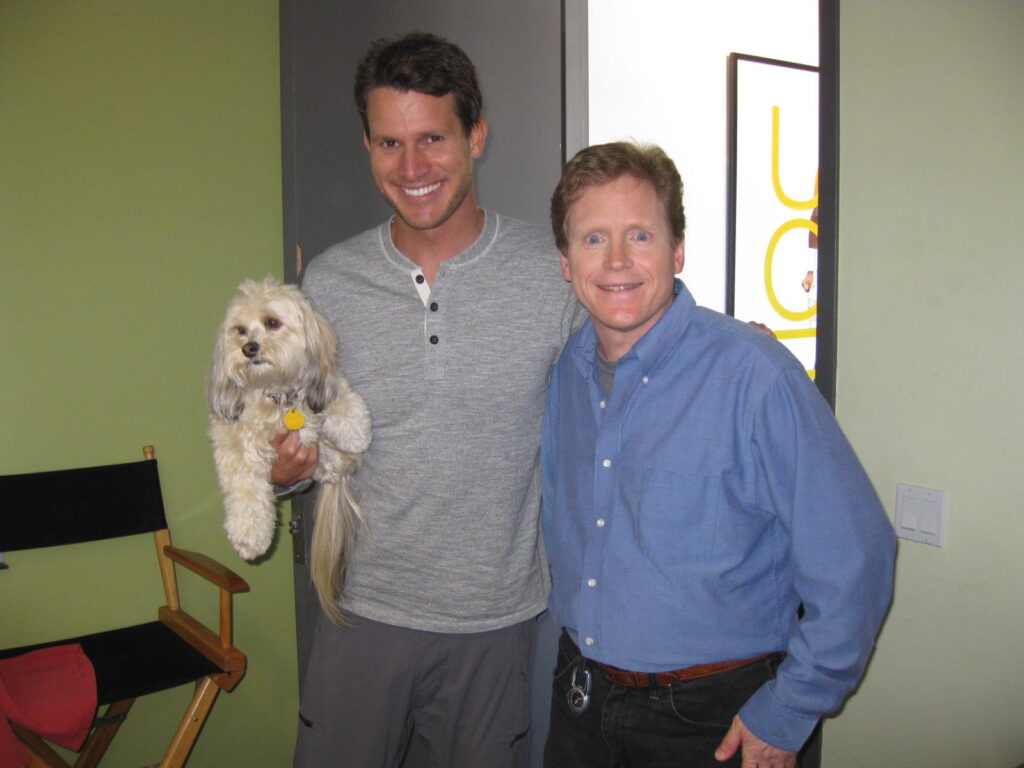
Appearing on Comedy Central’s Tosh.o is a highlight of my life. It was a dream come true for me to talk about climate change using humor on national TV to be seen by millions of people.
The menacing and odious atmosphere of the Presidential Campaign in the fall of 2016
Through the spring, summer, and fall, the 2016 Presidential campaign between Hillary Clinton and Donald Trump became more unsettling for me. As a Presidential candidate since June 2015, Donald Trump made endless bizarre statements, such as calling Senator John McCain, who was a prisoner of war in Vietnam for almost 5 years, “not a war hero.” He responded with insults to the Kahn Gold Star family who spoke at the Democratic convention who lost their son in Iraq while serving in the military.
When Trump mocked New York Times reporter with a disability, he looked like an insane person that belonged nowhere near the White House. That should have ended Trump’s chances to get elected as President then, but it only got worse. The Russians hacked Hillary Clinton’s emails and released them before the Democratic convention. Bernie Sanders supporters were still upset he was not the Democratic nominee. They protested inside and outside the convention.
In October 2016, it was shocking to read “At least 24 women accused the Republican presidential nominee, Donald Trump, of inappropriate sexual behavior in multiple incidents spanning the last 30 years.” Then came the infamous Access Hollywood tapes where Trump made lewd and inappropriate comments about kissing women and grabbing them by the genitals.
For me, that was not even the lowest part of the campaign. The most disgusting part of the 2016 Presidential campaign was when Trump invited Bill Clinton’s accusers of sexual abuse to sit in the family area close to the center of Presidential debate. The four women — Juanita Broaddrick, Paula Jones, Kathleen Willey and Kathy Shelton — sat in the audience alongside other ticketed members. It stunk as an obvious stunt to try to throw Hillary Clinton off their game and to deflect from Donald Trump’s glaring issues.
It is possible Bill Clinton may have been inappropriate with these women. If so, he should be held accountable. To me, it felt like Donald Trump used and abused them again as pawns and objects. He did not care about them. Even more, I was very disappointed with those four women. I would have had more respect for them if they would have held a press conference before the debate laying out their cases against Bill Clinton. Then they should have stated that Donald Trump invited them to the debate, but they refused to participate in his game. In their thirst for revenge against what they saw as a sexual predator (Clinton), these women ended up helping another sexual predator (Trump) with zero interests in securing more rights for women.
Trump’s mentor was attorney Roy Cohn. He was an American lawyer who became well known for as Senator Joseph McCarthy’s chief counsel during the Army–McCarthy hearings in 1954. In 1973, Trump hired Cohn to defend him and his father, Fred Trump, Sr. Donald and Fred were sued by the federal government for discriminating against black renters looking for apartments in their buildings in New York City. Cohn taught Trump when someone punches you, punch back 100 times harder, to be a counter puncher. Cohn advised Trump to “never settle” to never admit when he was wrong or made a mistake. These were deranged attributes that were very dangerous for a man to be power craven to want to be President of the United States.
The warning signs should have been clear to a large majority of Americans that Donald Trump was not fit to be President. Yet, he remained within striking distance in the polls. In October and into November, I kept watching the aggregate polls from fivethirtyeight.com hoping for reassurance that Donald Trump would lose. Their final poll had Hillary Clinton with over a 70% chance of winning the White House, with Donald Trump less than a 30% chance.
Other news media were even more bullish on Hillary Clinton’s chances. Days before the election, the Independent had the headline, “Survey finds Hillary Clinton has ‘more than 99% chance’ of winning election over Donald Trump.” On election day, the New York Times reported, “Clinton has an 85% chance to win.” Reuters forecasted, “Clinton has 90 percent chance of winning.”
I took solace reading these articles about polling in the weeks leading up to the election. Yet, the 2000 election, plus the negative interactions I had with Bernie supporters in 2016, had a bad feeling in the pit of my stomach that Hillary Clinton might not win. I felt especially nervous on October 28th when FBI Director James Comey announced to Congress that his agency found Hillary Clinton’s emails in a probe into former Rep. Anthony Weiner, D-N.Y., then-husband to Clinton aide Huma Abedin. Those emails Comey wrote to Congress appeared “pertinent” to the investigation into Clinton’s personal email server. He said the FBI was reviewing them.
I remember hearing this news on the radio and reading it on the internet at my in-laws’ house. My wife, her parents, and I did not know what to say. We all felt deeply troubled this could cost Hillary Clinton in a close election. To this day, many Clinton staffers and even Hillary Clinton felt it was a crucial blow that doomed her campaign in the days leading up to the election.
Still, because I thought she was the strongest candidate for climate action. Even more, people I deeply admire such as climate writer David Roberts and former Vice President Al Gore thought she was the best candidate in the November 2016 general election. Thus, I proudly voted for Hillary Clinton for President on November 8, 2016.
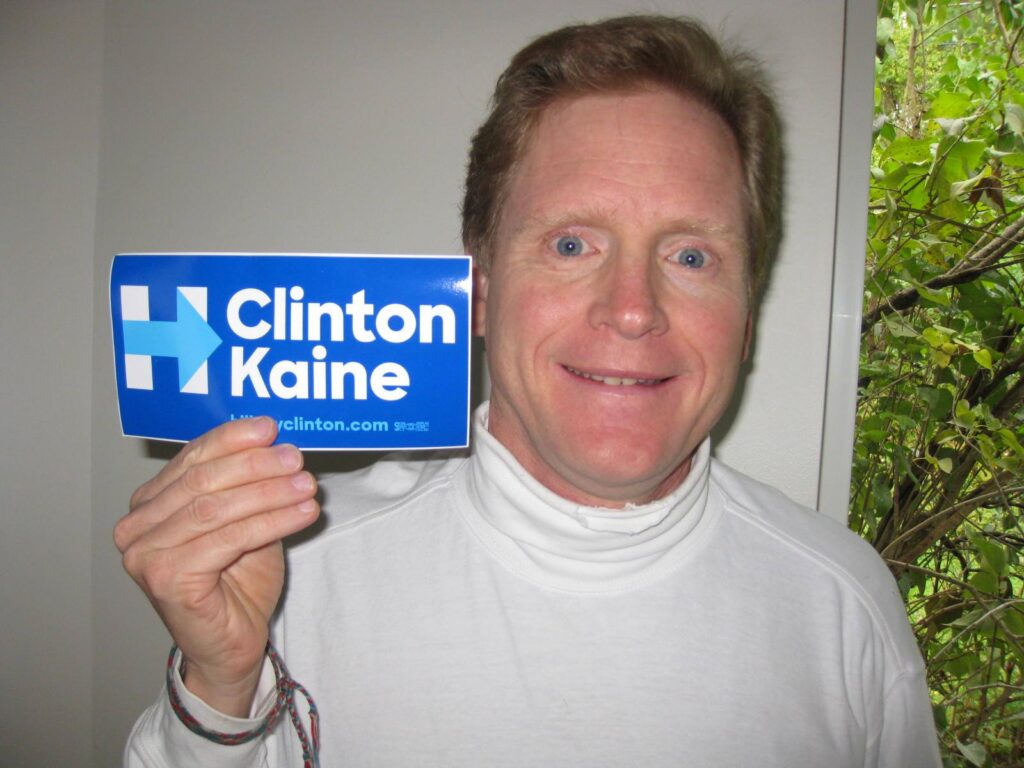
Responding the horrendous news that Donald Trump won the 2016 Presidential election
My wife and I watched the election results at her parents’ house on November 8, 2016. I was in a state of disbelief for days. I did not sleep for a couple of nights. Late that night, I wrote on Facebook, ‘There goes many years of my climate organizing down the drain.’
I felt like electing Donald Trump was a huge step backwards for U.S. climate policy. I could not decide if 2000 or 2016 felt worse.
The good news is that my friends on social media encouraging me to continue forward with my climate organizing. Yes, I intended to move past the election results. I planned to fly to Washington D.C. in a week to attend the November Citizens’ Climate Lobby (CCL) conference and lobby Congressional offices on November 15th, just one week after the election.
In the hours after the November 8th election, I exchanged messages with Cathy Orlando, the Director of Citizens’ Climate Lobby Canada. In September, I made plans to attend the CCL Canada conference happening at the end of November in Ottawa, Canada. I had friend who attended the previous Canadian CCL conferences and lobby days on Parliament Hill. They shared with me afterwards how they loved attending and lobbying in Canada. Plus, I really admired Cathy, so I was determined to attend. Somehow, Cathy and I exchanged messages about my April 2016 Toastmasters speech, “Hey U.S.A! Let’s Win the Clean Energy Race.”
Cathy then asked me if I could modify this speech and give it for the CCL Canada Conference. I was thrilled and honored that she invited me to be a guest speaker for this conference. Tanya then let me know that she wanted to attend the conference with me. This was peak experience for Tanya and me to travel to Canada for me to speak at this international conference and lobby Canadian members of Parliament to prioritize climate policies.

My presentation for this CCL Canada conference went great. I modified my April 2016 Toastmasters speech for this conference to be called “Hey North America! Let’s Win the Clean Energy Race!” Thankfully, the organizers of this conference live streamed and video taped all the presentations. Thus, later on, I uploaded this presentation to YouTube.
I recently heard Jane Fonda quote Greta Thunberg on a Climate One podcast released on September 29, 2016. Jane Fonda remarked, “Greta Thunberg said, ‘don’t go looking for hope. Look for action and hope will come.’ And she’s right.”
I overcame the bitter loss of the 2016 Presidential election by lobbying, public speaking, and taking action. My friend, former Crater Lake Park Ranger, and climate journalist Brian Kahn wrote an article featuring me for ClimateCentral.org, one of my favorite websites. The story, “National Parks Are At the Front Lines of Climate Communication” was published on November 14, 2016. It focused on how a greater number of park rangers are talking with park visitors about climate change. Brian reported on how I talk about climate change as a seasonal park ranger at Crater Lake National Park. Brian quoted me saying,
“The reality of climate change is facing us in national parks. You can’t deny it or go around it so it’s important to engage visitors no matter what.”
On December 6, 2016, I was live on St. Louis radio show Earthworms at FM KDHX 88.1. Host Jean Ponzi interviewed me about my climate change advocacy, especially my recent lobbying in Washington D.C. and Ottawa Canada for Citizens’ Climate Lobby.
The November 2016 Presidential election was a huge setback for climate action. However, as the Donald Trump Presidency approached in 2017, I did not let it stop me. I was determined to do more organizing, public speaking, and writing to reduce the threat of climate change.
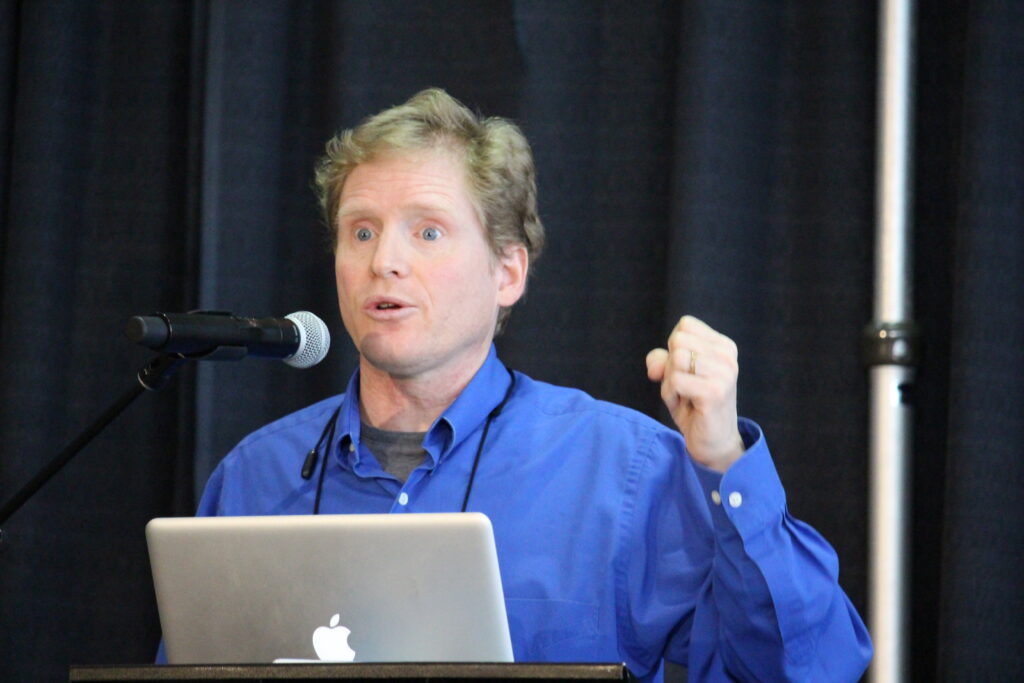
Stay tuned for Part 6: The disaster of Donald Trump’s Presidency and my climate action during the Trump Presidency, 2017-2020.
